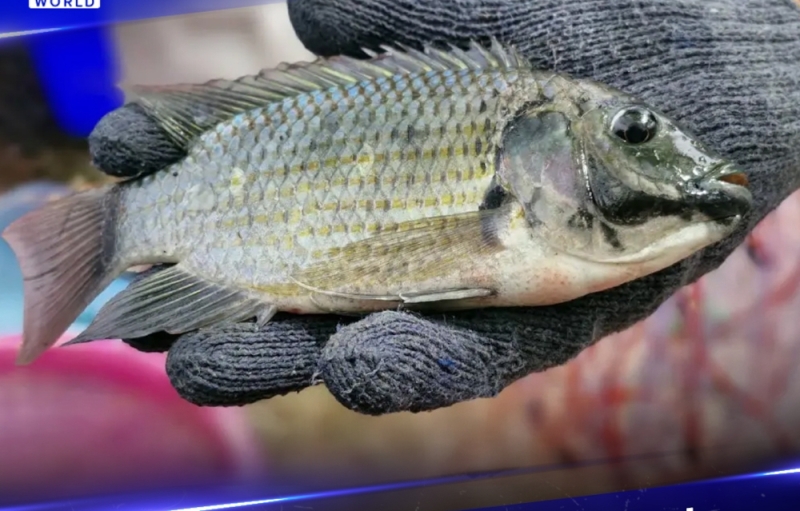RM1b = USD$231,535,000

Despite numerous efforts to control its population, the fish continues to wreak havoc on the environment and economy, and has impacted 17 provinces in the country, according to a BBC report published today.
By Malay Mail
Sunday, 01 Sep 2024
KUALA LUMPUR, Sept 1 — Thailand is facing a serious ecological crisis as the blackchin tilapia, a highly invasive fish species from West Africa, spreads rapidly through its waterways.
Despite numerous efforts to control its population, the fish continues to wreak havoc on the environment and economy, and has impacted 17 provinces in the country, according to a BBC report published today.
A parliamentary investigation is being conducted to determine the cause and identify those responsible, with Bangkok MP Nattacha Boonchaiinsawat stating, “We will not pass a devastated ecosystem to the next generation.”
He estimates that this outbreak will cost the Thai economy at least 10 billion baht (RM1.2 billion).
The blackchin tilapia poses a significant threat to Thailand’s aquaculture industry by preying on valuable species like shrimp and snail larvae.
This invasive species can reproduce at an alarming rate, making it difficult to eradicate.
The government has implemented various strategies to combat the problem, including encouraging public participation in fish-catching campaigns, releasing predators, and even developing genetically modified sterile fish.
However, experts warn that these efforts may be insufficient to stop the spread of the blackchin tilapia.
One contentious issue is the origin of the invasive species.
While the government suspects a laboratory experiment by Charoen Pokphand Food (CPF) as the cause, the company denies any involvement and threatens legal action.
Despite ongoing investigations, it remains unclear how the blackchin tilapia entered Thailand’s waterways.
Whether it escaped from a laboratory or was smuggled into the country, the consequences are severe.
Experts believe that eradicating the blackchin tilapia may be impossible due to its rapid reproduction and wide-ranging habitat.
The focus should now be on mitigating its impact and preventing further damage to the ecosystem.
Authorities have introduced the blackchin tilapia’s natural predators, such as Asian seabass and long-whiskered catfish, to control their population.
However, these efforts are challenged by the rapid reproduction of the species, with females capable of producing 500 fingerlings at once.
To further address the issue, authorities are developing genetically modified blackchin tilapia that produce sterile offspring, with plans to release them by the end of the year to curb the population growth.
Yet, Nattacha told BBC Thai that the government needs to take additional action.
“Who will win?” he asked. “We need the public to stay engaged with this issue, or it will fade into the background, and we will pass on this kind of environment to the next generation.”
The battle against the blackchin tilapia is a complex and ongoing challenge.
As Thailand grapples with this environmental threat, it is crucial to implement effective strategies and learn from the experiences of other countries facing similar invasions.
No comments:
Post a Comment